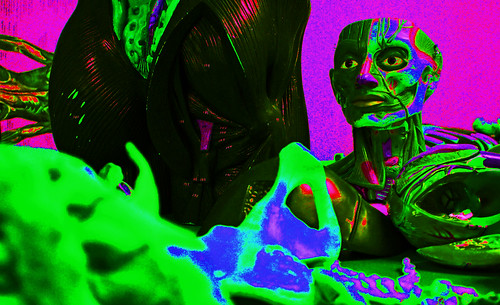Of all the recent reviews of The Lion King, old and new, film critic Doug Walker’s sums it up best: “I blame bad parenting for [Scar killing his brother the king]. Because when you name one kid ‘Mufasa’—meaning ‘king’—and you name the other kid ‘Scar’—meaning ‘scar’—aren’t you just begging for something like this to happen?”
It’s been nine months since the British Film Institute made a pledge regarding films like The Lion King: No more funding for films featuring villains with facial deformities. Ben Roberts, the BFI’s deputy CEO, told The Telegraph, “Film is a catalyst for change and that is why we are committing to not having negative representations depicted through scars or facial difference in the films we fund.” The decision was in support of the #IAmNotYourVillain campaign by the British advocacy group Changing Faces, which is “for everyone with a scar, mark or condition on their face or body that makes them look different.”
Filmmakers and artists could argue that banning any portrayal (no matter how stereotypical) constitutes censorship. Which is why a more productive—and, arguably, radical—move was the BFI’s simultaneous pledge to promote stories that portray disfigured heroes and heroines. This included funding for this summer’s critically acclaimed Dirty God (see above), about a woman facing prejudice both public and private after an acid attack. Perhaps the most groundbreaking aspect of the film is the main character’s portrayal by newcomer Vicky Knight, who has had burn marks on a third of her body since she was 8-years-old. This is an utterly extraordinary break in the long, long history of conventionally attractive, non-disabled actors slapping on makeup and prosthesis to portray deformed and disabled characters. And win awards for it.
And can I just SQUEE! for a moment over the fact that the Dirty God is also brave enough to make viewers watch and learn to empathize with a disfigured woman? Stories about learning to find true beauty within have existed before. But rarely has this been applied to a non-disfigured man meeting a disfigured woman. To quote a spot-on meme of Beauty and the Beast: “Appearances don’t matter. What counts is what’s in your heart. Unless you’re the girl.” As I’ve written before, tremendous progress will have been made when we as filmgoers can name numerous scenes wherein a visibly disabled heroine has a gorgeous man on his knees, driven mad with love for her.
Is that too much to ask of the industry? The public? To quote Wonder, the best American film about a facial deformity of the past several years: “He can’t change how he looks, so we have to change how we see.”



